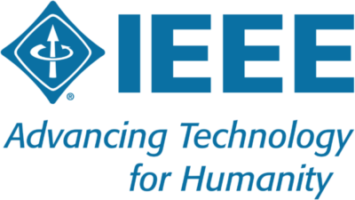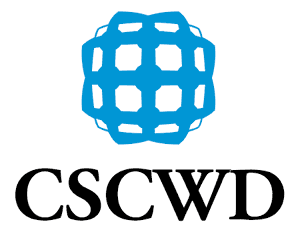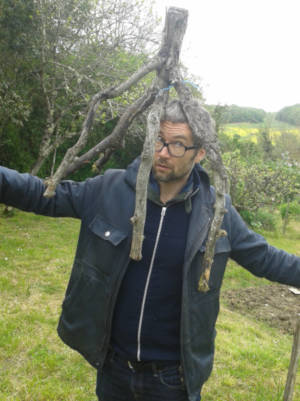

|
|
|
Keynote SpeakersMyriam Lewkowicz (Université de Technologie de Troyes - France)Ensuring participatory practice-centered computing - the role of technology probesStarting from lessons learned in two vast national projects aiming at supporting the digital transformation of the maintenance of the railway infrastructure, this keynote will dig into the socio-technical approach we have adopted to support this digital transformation, completing traditional evaluation criteria such as performance, correctness, robustness, or usability with methods and perspectives that illuminate how technology and practice develop each other. The particular emphasis that is put on social practices requires understanding the social characteristics in which the tools are going to be used, and integrating the understanding of individual and social activities in the innovative design and development of digital technologies. This keynote will present how we combined different perspectives for socio-technical interventions; on one hand, grounded design and design case studies, starting with an empirical study of real world practices, then the design of a digital artifact to support these practices, and the study of its appropriation (Rohde et al. 2017), and on the other hand, design research with rapid design interventions and dynamic cycles of evaluation (Seldlmair et al. 2012). This keynote will present our experience with the use of technology probes (Hutchinson et al, 2003), a design technique inspired by cultural probes offered by designers to support an on-going design conversation, that provides an alternative account of knowledge production in HCI design (Boehner et al. 2007). Probes allow future users to directly inspire and shape the technologies that are developed, in other words to influence the design concept itself, and not only the user experience. This keynote will illustrate how technology probes were used to (1) try out the potential of the Digital Twin technology to support cooperation among the schedulers of the maintenance work on the railway infrastructure (Stalder, Ducellier, Lewkowicz, 2023); (2) design systems to support cooperative work of maintenance workers on duty (Lauferon, Lewkowicz, 2024)
Luis M. Camarinha-Matos (NOVA University Lisbon - Portugal)Trends in Collaborative NetworksOver the past decades, the rise of a networked society has been driven by rapid advancements in information and communication technology (ICT), particularly in computer networking. This has enabled unprecedented hyper-connectivity among organizations, individuals, smart machines, and intelligent systems. As a result, new forms of coworking and collaboration have emerged, composed of distributed, autonomous, and heterogeneous entities. This evolution first led to the establishment of Collaborative Networks (CNs) as a distinct discipline with a socio-technical character, followed by a series of milestones that have progressively shaped its development. Nowadays CNs play a key role in the ongoing digital transformation across industries and services. Although still a relatively young field, CNs have evolved through several generations over the past decades. As we move toward Society 5.0, the complexity of interactions among a diverse range of agents continues to intensify. The unpredictability of modern environments—shaped by volatility, uncertainty, complexity, and ambiguity (VUCA)—further highlights the need for advanced collaborative networks. At the same time, Artificial Intelligence (AI) is revolutionizing work dynamics, enabling new ways for humans and AI-driven systems to collaborate effectively across a wide range of tasks. In an increasingly interconnected global economy, collaboration constitutes a fundamental pillar of development. However, the design, support, management, and supervision of hybrid human-AI collaborative networks present significant scientific and technological challenges. As such, we are now entering a new phase—Collaborative Networks 5.0—characterized by features such as: collaborative cyber-physical systems, collaboration between humans and intelligent autonomous systems, collaborative distributed cognitive systems, increased focus on collaborative accountability, handling ethics and coping with risks and disruptions, managing large amounts of collaborative data, monetization of collaboration, creating a collaboration culture, supporting collaboration creativity, handling mass collaboration, and supporting collaborative value creation through new business models, among others.
Nicolas Maudet (Sorbonne Université - France)Game-theoretical control in cooperative settingsCooperative multi-agent systems can be controlled on the basis of game-theoretical principles. In this talk I will recall the foundations of these approaches, before discussing their strengths and limitations based on some recent work.
|



 Myriam Lewkowicz is Professor (Informatics) at Troyes University of Technology where she is deputy-director
of
the LIST3N research group and heads the master program. She is interested in defining digital technologies
to
support existing collective practices or to design new collective activities. This interdisciplinary
research
proposes reflections and approaches for the analysis and the design of new products and services to support
cooperative work. The main application domains for this research for the last fifteen years have been
healthcare (social support, coordination, telemedicine) and the Industry (digital transformation,
maintenance). She is a member of the program committees of the main conferences in Cooperative Work, Social
Software, and Human-Machine Interaction, has chaired the European scientific association EUSSET (2017-2023),
and is deputy editor-in-chief of the CSCW journal, « The Journal of Collaborative Computing and Work
Practices
».
Myriam Lewkowicz is Professor (Informatics) at Troyes University of Technology where she is deputy-director
of
the LIST3N research group and heads the master program. She is interested in defining digital technologies
to
support existing collective practices or to design new collective activities. This interdisciplinary
research
proposes reflections and approaches for the analysis and the design of new products and services to support
cooperative work. The main application domains for this research for the last fifteen years have been
healthcare (social support, coordination, telemedicine) and the Industry (digital transformation,
maintenance). She is a member of the program committees of the main conferences in Cooperative Work, Social
Software, and Human-Machine Interaction, has chaired the European scientific association EUSSET (2017-2023),
and is deputy editor-in-chief of the CSCW journal, « The Journal of Collaborative Computing and Work
Practices
».
 Dr. Luis M.
Camarinha-Matos is a Full Professor of Robotics and Manufacturing at NOVA University Lisbon,
Portugal, and serves as the Director of the Center of Technology and Systems (CTS) at UNINOVA. He leads the
Collaborative Networks & Distributed Industrial Systems research group at CTS. With extensive experience in
both national and international projects, Dr. Camarinha-Matos has contributed as a researcher and project
coordinator in numerous initiatives. He is a founder of the PRO-VE and DoCEIS conferences series and serves
as President of SOCOLNET – the Society of Collaborative Networks. Additionally, he is an active member of
IFIP Working Groups 5.5 (founder) and 5.7, as well as the Domain Committee on IoT. His research interests
span several key areas, including collaborative enterprise networks, intelligent manufacturing,
cyber-physical systems, digital transformation, collaborative energy ecosystems, and elderly care. With over
550 publications in referred journals and conference proceedings, he has made significant contributions to
the field. He has also served as an evaluator for research proposals for the European Commission and
multiple other international funding organizations. In recognition of his contributions, Dr. Camarinha-Matos
was awarded the title of Doctor Honoris Causa by the Polytechnic University of Bucharest, Romania, in 2009.
Dr. Luis M.
Camarinha-Matos is a Full Professor of Robotics and Manufacturing at NOVA University Lisbon,
Portugal, and serves as the Director of the Center of Technology and Systems (CTS) at UNINOVA. He leads the
Collaborative Networks & Distributed Industrial Systems research group at CTS. With extensive experience in
both national and international projects, Dr. Camarinha-Matos has contributed as a researcher and project
coordinator in numerous initiatives. He is a founder of the PRO-VE and DoCEIS conferences series and serves
as President of SOCOLNET – the Society of Collaborative Networks. Additionally, he is an active member of
IFIP Working Groups 5.5 (founder) and 5.7, as well as the Domain Committee on IoT. His research interests
span several key areas, including collaborative enterprise networks, intelligent manufacturing,
cyber-physical systems, digital transformation, collaborative energy ecosystems, and elderly care. With over
550 publications in referred journals and conference proceedings, he has made significant contributions to
the field. He has also served as an evaluator for research proposals for the European Commission and
multiple other international funding organizations. In recognition of his contributions, Dr. Camarinha-Matos
was awarded the title of Doctor Honoris Causa by the Polytechnic University of Bucharest, Romania, in 2009.
 Nicolas Maudet
is a Professor of Computer Science at LIP6, Sorbonne Université. He is working in AI and
multiagent systems, with a focus on computational social choice, argumentative reasoning and deliberation.
Nicolas Maudet
is a Professor of Computer Science at LIP6, Sorbonne Université. He is working in AI and
multiagent systems, with a focus on computational social choice, argumentative reasoning and deliberation.